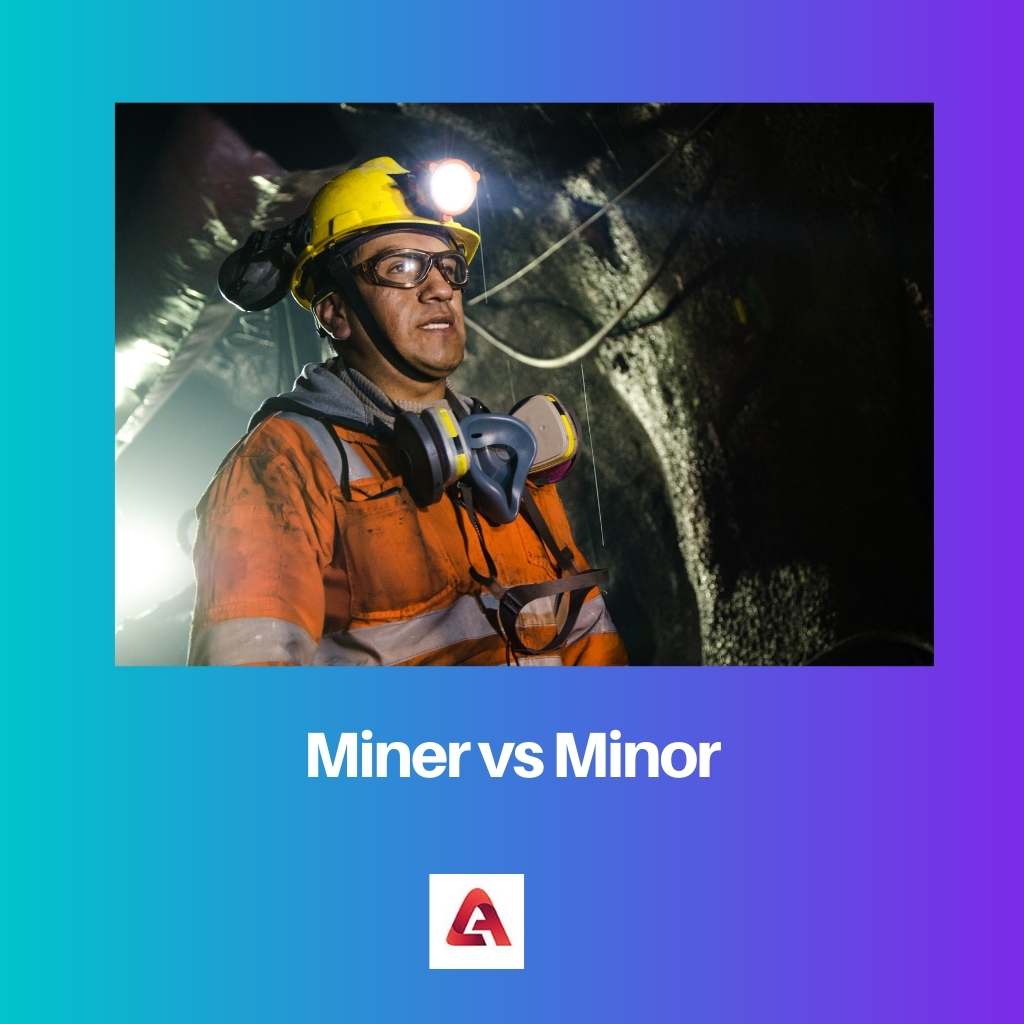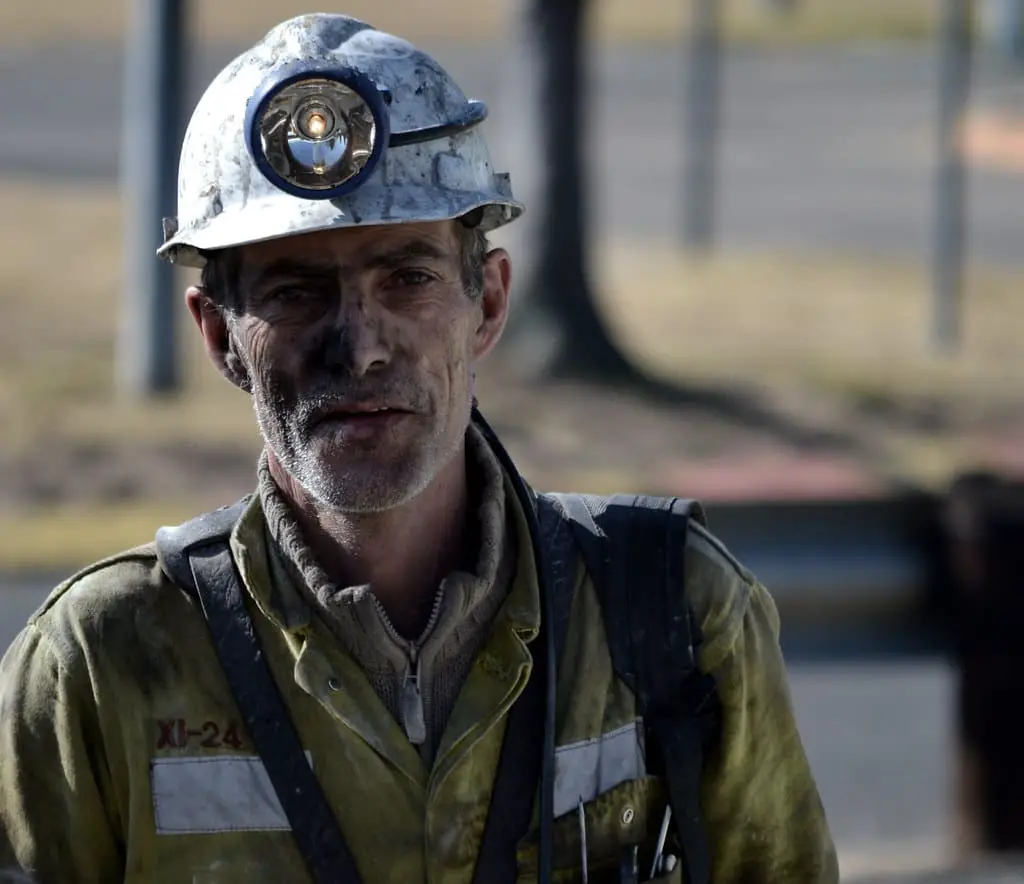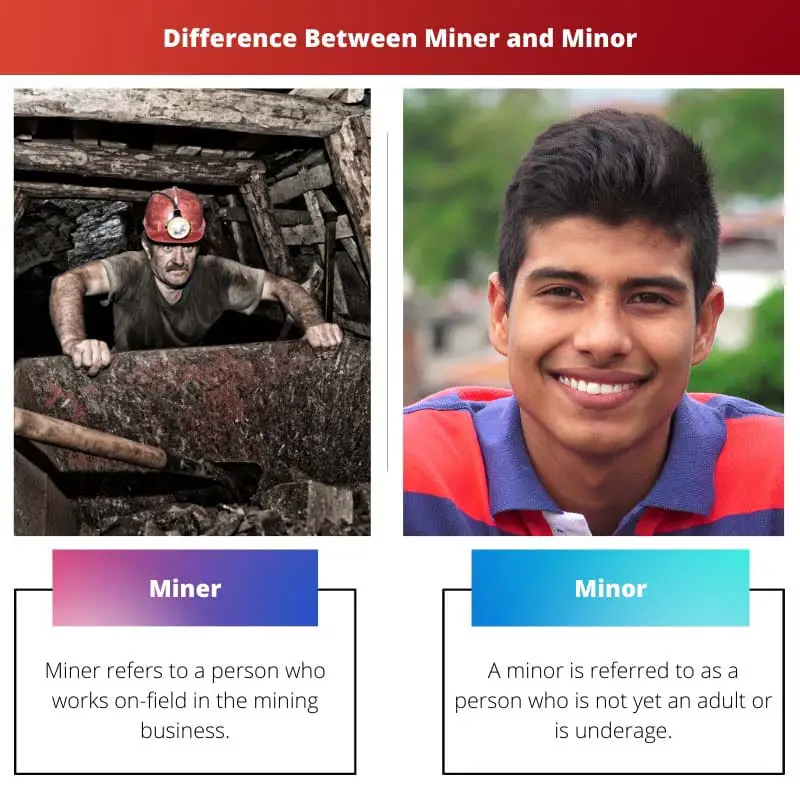The English language has vast concepts that can be very confusing to understand. It includes words that sound the same when spoken. However, on being written, the exact same words have different spellings and meanings.
Such words are termed as ‘homophones.’ An example of homophones is the words miner and minor. They sound the same but have quite a few differences.
Key Takeaways
- Miners extract valuable minerals or resources from the earth, whereas minors are individuals under the legal age of adulthood.
- Mining is a profession, while a minor is a legal status determined by age.
- Mining regulations and safety standards apply to miners, while laws and regulations for minors focus on legal rights, responsibilities, and protections.
Miner vs Minor
The difference between miner and minor is that the term ‘miner’ is a noun that is used to refer to a person who earns a livelihood by working in mines, whereas the term ‘minor’ when used as a noun, refers to a person who has not yet turned of legal age. Interestingly, ‘minor’ can also be used as an adjective.

In a broader sense, a miner is a person who works in a mine to extract materials such as coal, chalk, ore, etc. However, in delving into specific meanings, a miner was originally a person who worked at the surface of a mine in order to open it for further excavation. This work included cutting and removing rocks.
Meanwhile, the term ‘minor’ can be used in three senses – as a noun, an adjective, and even a verb. When used as a noun, it refers to an underaged person.
As an adjective, the term refers to something that is less in importance, size, extent, etc. When used as a verb, it refers to learning a specific secondary subject while in college, but this is mostly used in America only.
Comparison Table
| Parameters of Comparison | Miner | Minor |
|---|---|---|
| Meaning (noun) | Miner refers to a person who works on-field in the mining business. | A minor is referred to as a person who is not yet an adult or is underage. |
| Spelling | It is spelt with an ‘e’. | It is spelt with an ‘o’. |
| Nature | It can only be used as a noun. | It can be used as a noun, adjective and verb. |
| Adjective | It does not have an adjective form. | It refers to something having a lesser position in comparison with other things. |
| Verb | It does not have a verb form. | It refers to a secondary subject taken by a person while in college. |
What is Miner?
The term ‘miner’, as a noun, refers to a person who has a job on-field in a mine. This job requires the person to excavate certain materials, including ore, chalk, coal, clay, or other resources, from inside the earth’s surface.
However, originally, the term was only used to describe a person who works on the surface of a mine, to pave the way forward.
There is no verb or adjective form of the word ‘miner’. It can only be used as a noun. A good way to remember this is by understanding that the word contains the term ‘mine’ inside it.
This is the action from which the noun is derived. It can be used with various suffixes such as ‘-ing’, ‘ed’, and even ‘-ers’. However, the meaning always remains the same.
Some examples of sentences that include the term ‘miner’ in them are –
‘My son has the job of a miner.’
‘The young miner got tired while digging for gold in the blazing sun.’
‘This guy earns his living by working as a miner.’
‘The miners’ union appointed Akita as their leader.’
‘The gold miners of Ukraine are jobless again since their factory closed down due to financial loss.’

What is Minor?
Unlike ‘miner’, the term ‘minor’ can be used in three ways. These include a noun, adjectives, and even a verb. As a noun, the term refers to a person who is still underage or has not yet reached the legal age to be called an adult. Some examples of sentences including this noun are –
‘He was not allowed to enter the club since he was a minor.’
‘Minors are not allowed to get their driving licenses.’
The term is used as an adjective as well. In this case, it refers to something that is lesser in importance, size, extent, etc., than other things that it is compared with. Some examples of the adjective in a sentence include –
‘Akita had a minor stroke last week, but she is fine now.’
‘I have a minor problem with your work ethic.’
The term can also be used as a verb, but this is normally done only in America. In such a case, it refers to a secondary subject that is taken up by a learner while in college. Some examples of the verb in a sentence are –
‘He took up a minor in the subjects of entomology and ecology this year.’
‘He was not able to complete his minor after he met with a life-threatening accident.’

Main Differences Between Miner and Minor
- The term ‘miner’ is spelt with an ‘e’, whereas the term ‘minor’ is spelt with an ‘o’.
- The term ‘miner’ can only be used as a noun, whereas the term ‘minor’ can be used as a noun, adjective and even a verb.
- When used as a noun, ‘miner’ refers to a person who has an on-field job working in a mine, whereas ‘miner’ refers to someone who is not yet an adult or underage.
- ‘Miner’ cannot be used as an adjective, whereas ‘minor’ in adjective form refers to something having a lesser position in comparison with other things.
- ‘Miner’ cannot be used as a verb, whereas ‘minor’ in verb form refers to a secondary subject taken by a person while in college.




